Explainer: Swiss voters to decide on anti-tobacco advert initiative
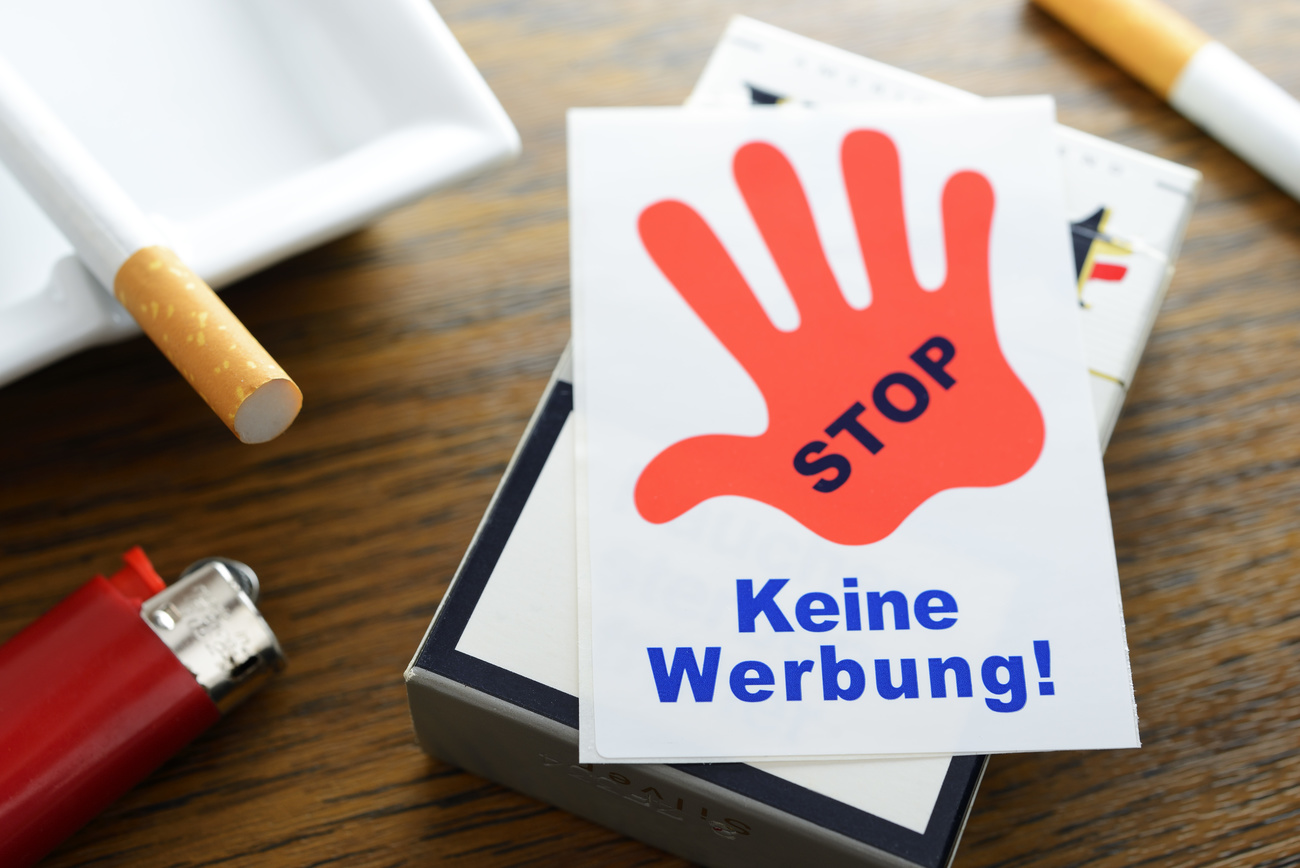
Switzerland, home to the world’s largest cigarette companies, has some of the weakest laws against tobacco advertising in Europe. On February 13, Swiss voters will decide on the people’s initiative “Yes to the protection of children against tobacco advertising”, which calls for a ban on any adverts targeting young people.
What’s it all about?
In Switzerland, some two million people – about a quarter of the population – are smokers, including around 100,000 aged 15 to 19. On February 13, a people’s initiative designed to reduce the attraction of cigarettes will ask citizens to decide whether to strictly control tobacco advertising aimed at young people. Parliament, however, believes the initiative text goes too far and has developed an indirect counter-proposal, which seeks to balance economic factors with concerns for children’s health.
How does Switzerland compare internationally?
Switzerland has one of the weakest tobacco control regimes in Europe. The 2019 Tobacco Control ScaleExternal link ranked Switzerland second from bottom overall and last in terms of restrictions on tobacco advertising. In addition, it is the only European country not to have ratified the World Health Organization Framework Convention on Tobacco Control (WHO FCTC). Switzerland signed the treaty in 2004 but parliament’s reluctance to curb advertising has prevented the country from fulfilling its commitments.
Critics say this can be explained by the fact that Switzerland is home to the world’s major cigarette manufacturers. Philip Morris International (PMI) has a major presence in Switzerland. PMI’s worldwide operations centre and PMI Switzerland are based in Lausanne and its global research and development facility is in Neuchâtel. The headquarters of Japan Tobacco International has been based in Geneva since 2015, while British American Tobacco has its Swiss offices and a manufacturing site in Boncourt, canton Jura. Located in Switzerland for years, these companies carry out intensive lobbying of lawmakers.
What does the people’s initiative call for?
The initiativeExternal link wants to add supporting young people’s health to the social goals defined in the Swiss Constitution. It also calls for a ban on “any form of advertising [of tobacco products] that reaches children and young people”. Only tobacco advertising directly targeting adults would be allowed, such as in magazines, leaflets, targeted emails and internet content designed for adults.
What does the indirect counter-proposal suggest?
The Tobacco Products LawExternal link is the result of seven years of legislative ping-pong between various federal authorities. The first version proposed by the government in 2015 would have allowed for the ratification of the WHO FCTC but was rejected by parliament, which was against the idea of setting limits on tobacco advertising. A new watered-down version was presented in 2019, but this time, in an effort to partially respond to the people’s initiative, parliamentarians added restrictions on advertising.
After heated debates and close votes, the two chambers of parliament delivered a text with very few new elements. It also fails to meet the requirements of the WHO FCTC. The new law bans tobacco advertising in public buildings, public transport, sports venues and during sporting events. Posters in public spaces are also banned, as are promotional adverts in cinemas. Radio and television cigarette advertising is already banned under the Federal Act on Radio and Television.
As for protecting young people, parliament decided to rework the existing legislation to ban advertising only when it targets minors. This means that tobacco advertising is banned in school materials, newspapers and internet sites targeting minors, as well as in places mainly frequented by young people. Sponsorship of national events by cigarette companies is still allowed, except for those aimed at people under 18.
The counter-proposal is indirect, which means that it could become law whatever the outcome of the February 13 vote. But if the initiative is accepted, federal authorities will be required to adapt the law to respond to the new requirements.
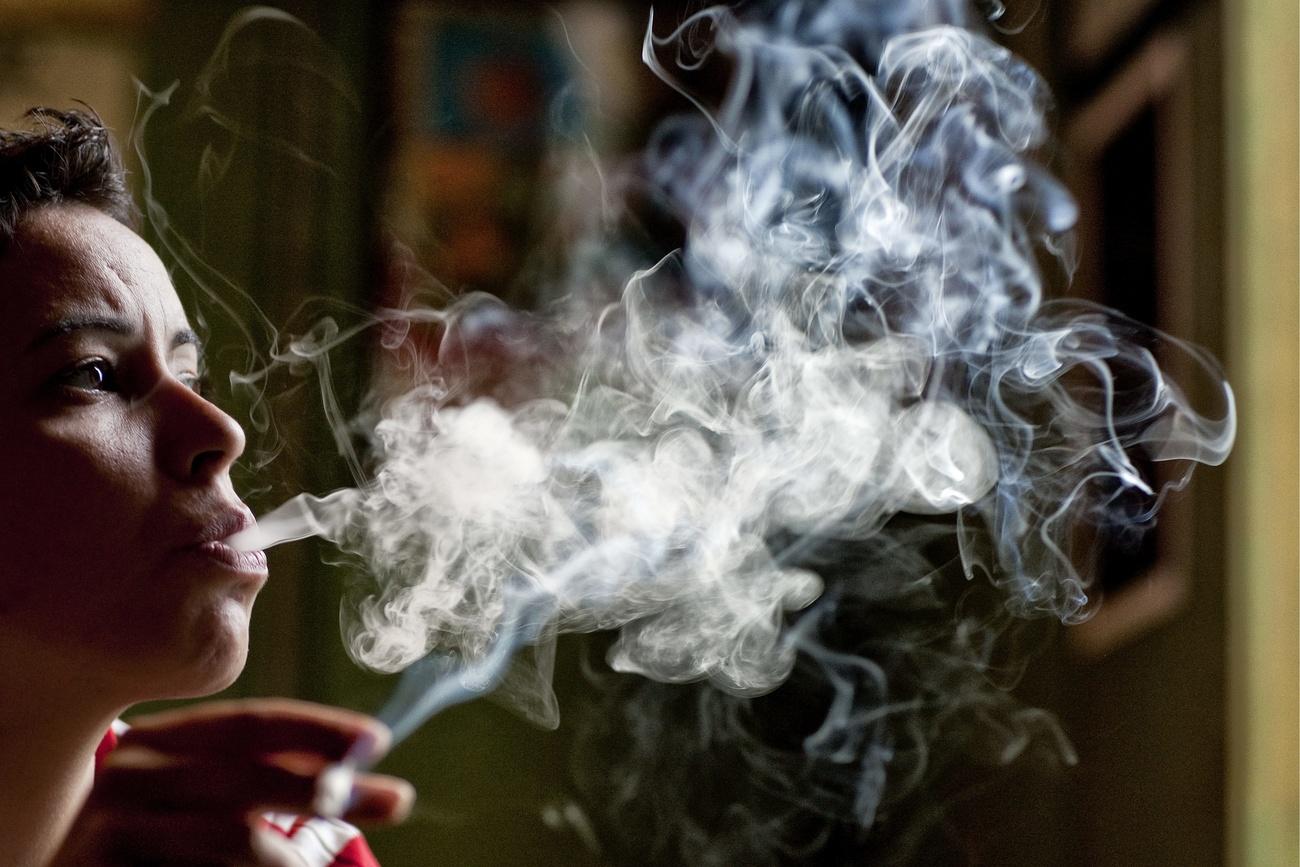
More
Will tobacco-friendly Switzerland change its tune on smoking laws?
Who supports the initiative?
The text was launched by several health and youth organisations, including the Swiss Medical Association, the Swiss Cancer League, the Swiss Society of Paediatrics, and Addiction Switzerland. It is supported by the Social Democratic Party, the Green Party, the Liberal Green Party and the Protestant Party.
Over half of Swiss smokers began the habit before they turned 18. The initiative committee says early smoking increases the risk of long-term dependence, illness, and death. It notes that several studies show the strong influence advertising has on young people, hence the importance of banning any tobacco advertising that could reach them.
The initiative’s supporters are disappointed by the counter-proposal because advertising is still authorised in several places accessible to minors, such as free newspapers and on social networks and the internet. Even festivals could still feature tobacco advertising.
“As such, the interests of the tobacco and advertising industries are put above the well-being of our children and teenagers,” the initiative committee states.
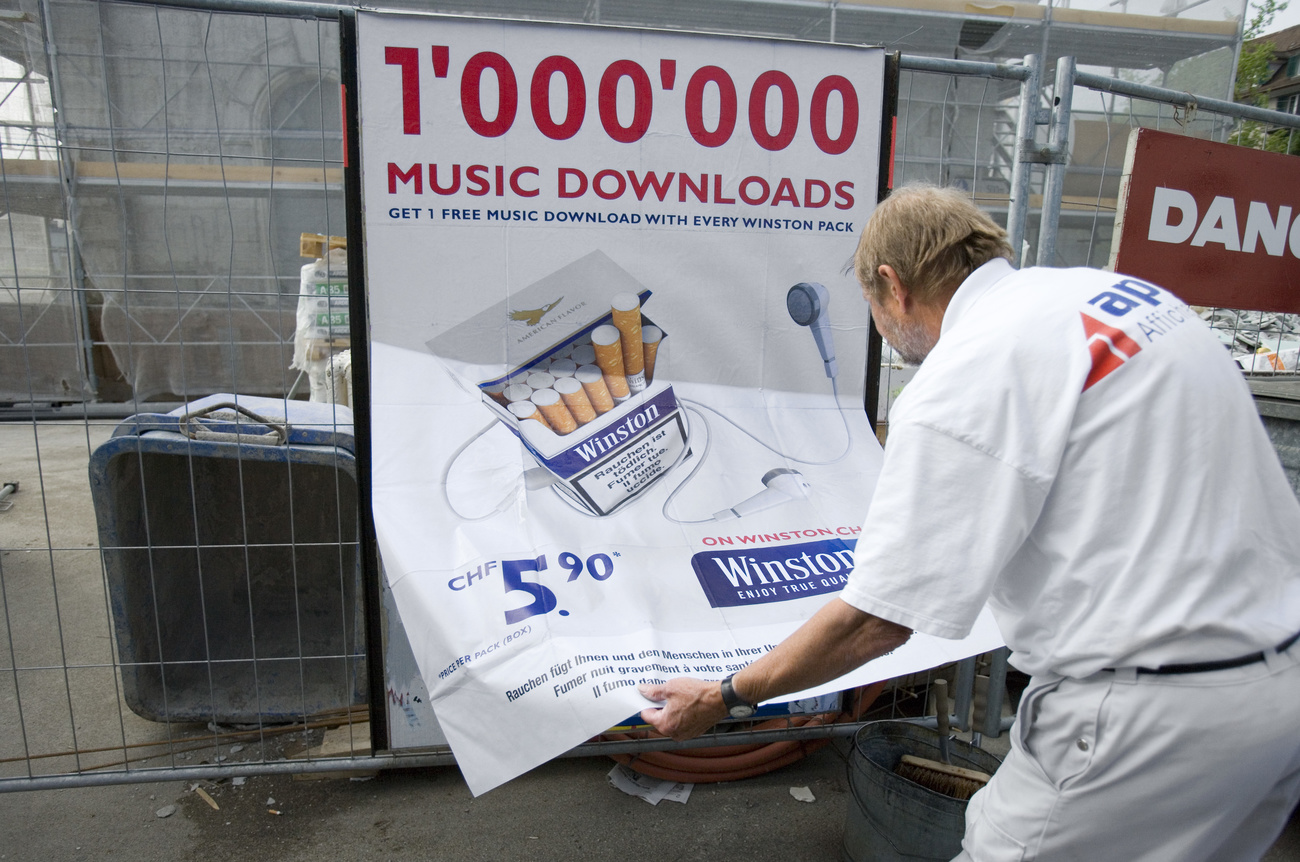
More
Parliament rejects blanket ban on tobacco ads
Who is against the initiative?
Most of the parties on the right and centre – which represent a parliamentary majority – and the government. They believe the text goes too far because advertising would only be allowed in the rare places or platforms that are inaccessible to young people.
“It would be unprecedented and incomprehensible if products that are legally manufactured and legally available were no longer the subject of advertising,” says Swiss People’s Party parliamentarian Thomas Burgherr. “We believe it is an unjustifiable attack on economic freedom.”
The initiative’s opponents say the counter-proposal sufficiently reinforces protections of young people by instigating several restrictions at the federal level, while the cantons are free to enact additional measures. Opponents also note that the new law bans the sale of tobacco to minors nationwide, whereas today the age limit varies from one canton to another. They say this harmonisation is a big step to protecting young people from the harmful effects of tobacco.

More
Should Swiss museums and festivals accept tobacco industry money?
More

In compliance with the JTI standards
More: SWI swissinfo.ch certified by the Journalism Trust Initiative









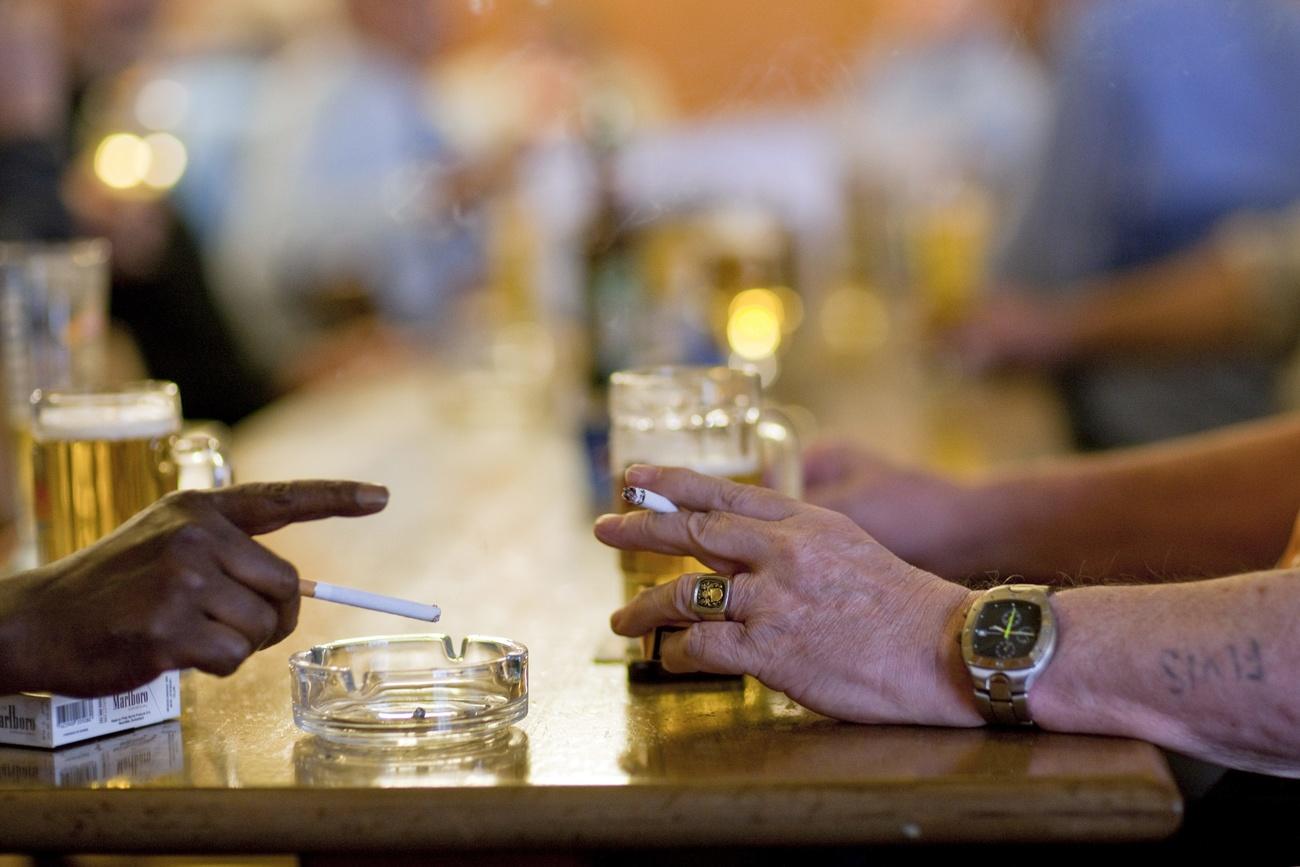



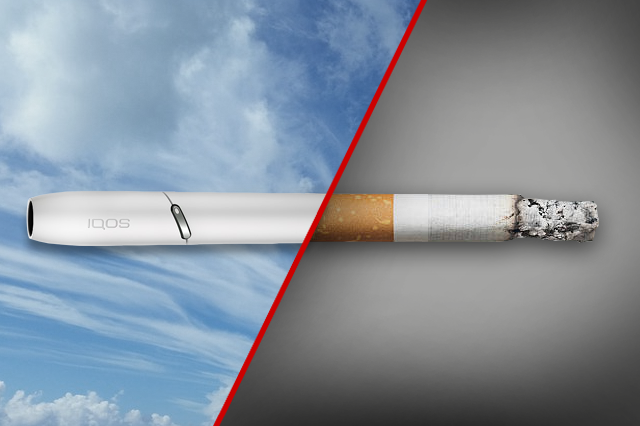

You can find an overview of ongoing debates with our journalists here . Please join us!
If you want to start a conversation about a topic raised in this article or want to report factual errors, email us at english@swissinfo.ch.